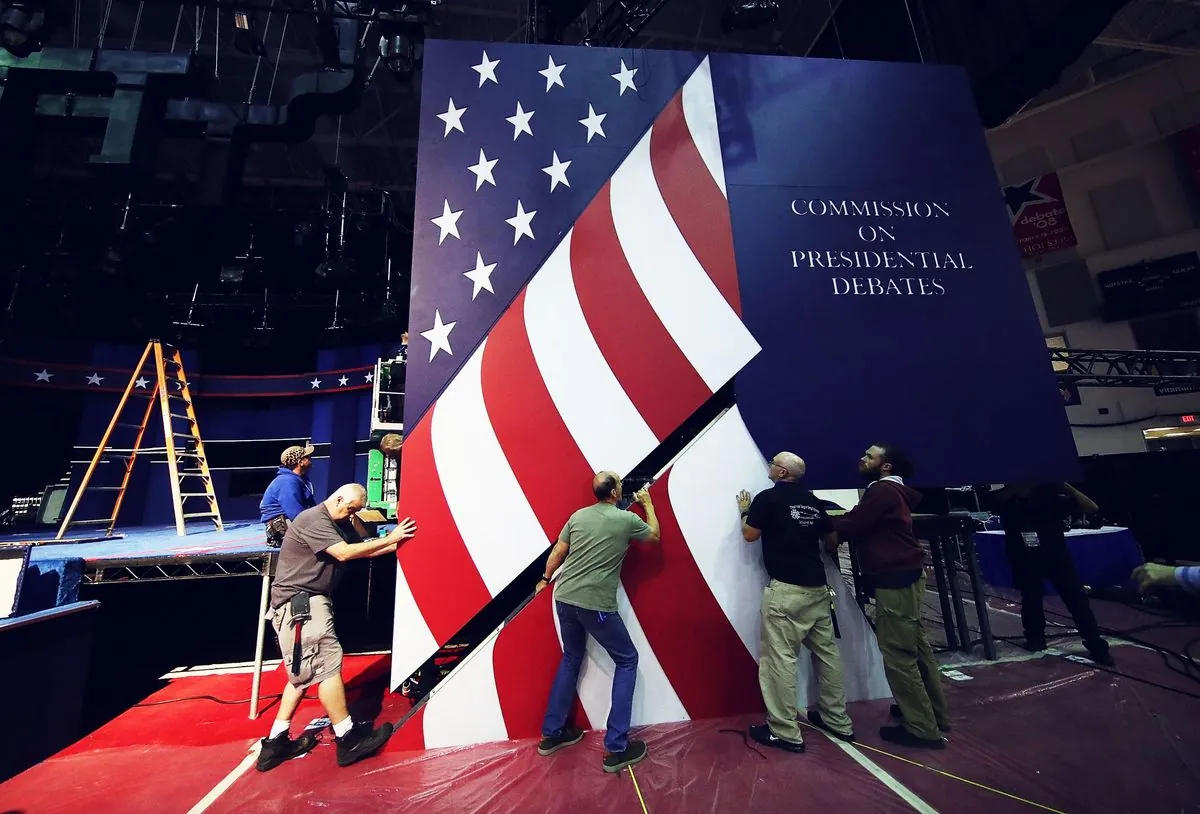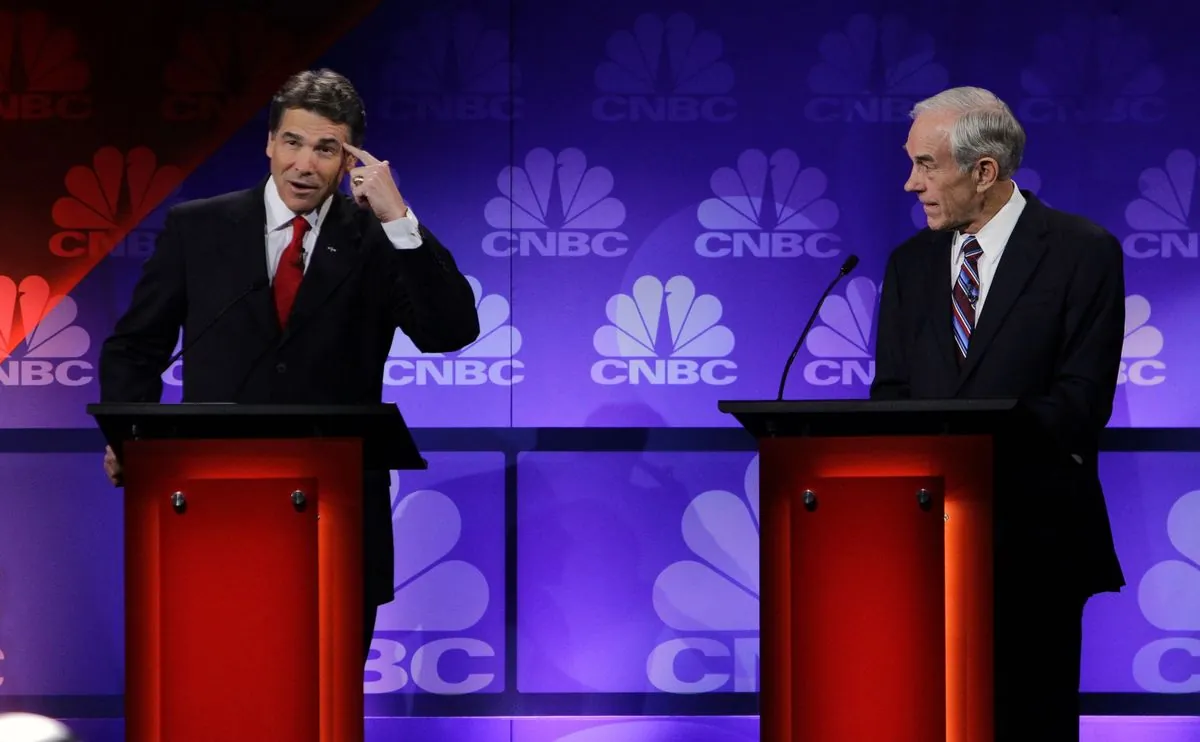Presidential Debates: Pivotal Moments That Shaped Political History
From Reagan's age quip to Biden's stumble, presidential debates have been defining moments in U.S. elections. These high-stakes events showcase candidates' strengths and weaknesses, often with unexpected outcomes.

Presidential debates have long been a cornerstone of American political discourse, offering voters a unique opportunity to assess candidates in real-time. These high-stakes events, which began with the televised Kennedy-Nixon debate in 1960, have produced numerous memorable moments that have shaped the course of elections and political careers.
One of the most recent and impactful debates occurred in June 2024, when President Joe Biden faced off against former President Donald Trump in Atlanta. The event, which took place just over two months ago, proved to be a turning point in the election cycle. Biden, then 81 years old, struggled throughout the debate, appearing confused and making several notable gaffes. His performance was so poor that it led to his withdrawal from the race just 28 days later, on July 21, 2024, when he endorsed Vice President Kamala Harris.
This incident highlights the unpredictable nature of live televised debates. As Alan Schroeder, author of "Presidential Debates: 50 years of High-Risk TV," notes, "Being live television events, without a script, without any way of knowing how they are going to evolve — anything can happen."
The impact of age on debate performance is not a new concern. In 1984, Ronald Reagan masterfully addressed this issue during his second debate with Walter Mondale. When questioned about his mental and physical stamina, Reagan, then 73, quipped:
"I will not make age an issue of this campaign. I am not going to exploit, for political purposes, my opponent's youth and inexperience."
This well-timed joke effectively neutralized concerns about Reagan's age and is often cited as a turning point in that election.
Debates have also been the stage for significant gaffes that have altered the course of campaigns. In 1976, Gerald Ford's assertion that there was "no Soviet domination of Eastern Europe" during a debate with Jimmy Carter became a major stumbling block for his campaign. Similarly, Rick Perry's infamous "Oops" moment in 2012, when he couldn't remember the third federal agency he planned to eliminate, effectively ended his presidential aspirations.

Non-verbal cues and body language have also played crucial roles in debate outcomes. George H.W. Bush's glance at his watch during a 1992 town hall debate with Bill Clinton was interpreted as a sign of impatience or boredom, potentially contributing to his loss. In 2000, Al Gore's audible sighs during his debate with George W. Bush were seen as condescending, while in 2016, Donald Trump's looming presence behind Hillary Clinton during a town hall debate became a much-discussed moment.
As we approach the upcoming debate between Vice President Kamala Harris and former President Donald Trump in Philadelphia, it's worth noting that these events have evolved significantly since their inception. The Commission on Presidential Debates, established in 1987, has worked to ensure nonpartisan debates, while technological advancements have changed how audiences engage with these events. For instance, the 2012 debates were the first to be live-streamed on YouTube, and social media commentary has become an integral part of the viewing experience since 2008.
Presidential debates continue to be pivotal moments in the electoral process, offering candidates the opportunity to showcase their strengths and potentially exposing their weaknesses. As history has shown, a single well-timed quip or unfortunate gaffe can have far-reaching consequences, making these events some of the most watched and analyzed in American politics.


































